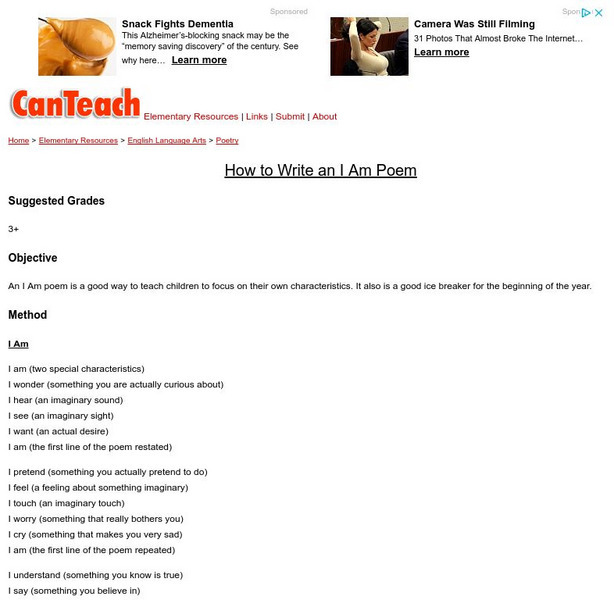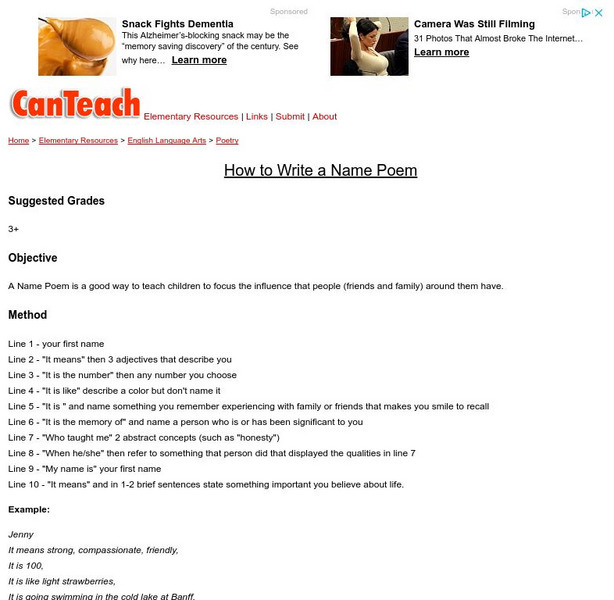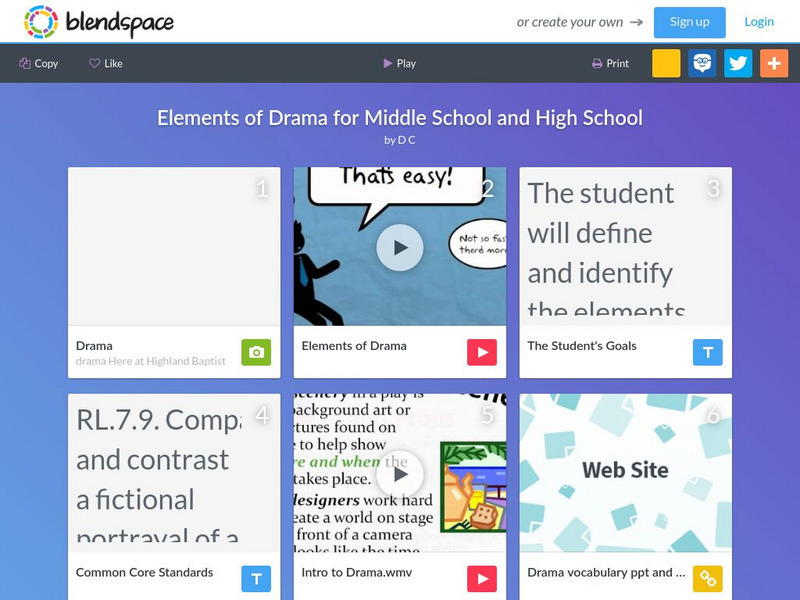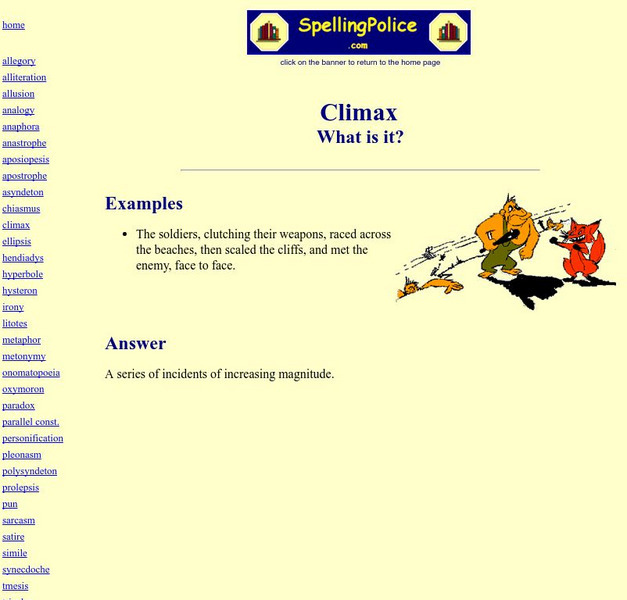Can Teach
Can Teach: Writing a Bio Poem
This site describes how a Bio poem can be used to teach students to focus on the characteristics of a person or an animal, anything or anyone really. It requires the student to put themselves in the subject's shoes. Lesson plan indicated...
Can Teach
Can Teach: How to Write a 5 W Poem
This site describes how a 5W poem is a good way to teach children to identify and focus on the five W's of a story or an event. Lesson plan indicated for 1st grade and above.
Can Teach
Can Teach: How to Write an "I Am" Poem
This is a template for "I Am" poetry. Students will focus on their own characteristics as they create an autobiographical poem.
Can Teach
Can Teach: How to Write a Name Poem
This site describes how a Name Poem is a good way to teach children to focus the influence that people (friends and family) around them have. Lesson plan indicated for 3rd grade and above.
Can Teach
Can Teach: How to Write a Cinquain
At the most basic level a cinquain is a five line poem or stanza. Here are two variations. Lesson plan indicated for 1st grade and above.
Can Teach
Can Teach: How to Write a Diamond Poem
This is a good poem format to help teach adjectives, verbs, and nouns. Lesson plan indicated for 2nd grade and above.
Application Magazine
Aplicaciones: Poesias Para Los Pequenos Y Para Los Mayores
On this website you will find 40 poems for elementary students and 40 poems for middle school age students. At the end of each one there is a quiz to test the comprehension.
Other
Gareth Lancaster: Fizzy Funny Fuzzy Poetry for Kids: All the Poems
A list of 85 poems to read and share or print. Poems also can be rated, and comments can be added under each poem.
TES Global
Blendspace: Elements of Drama for Middle School and High School
A six-part learning module with links to images, videos, texts, and websites to use while learning the elements and types of drama.
Quizlet
Quizlet: Plot Terms: 7th Grade Level Match
Race against the clock to match each story element with its definition. Terms include: plot, introduction, conflict, rising action, climax, falling action, conclusion/resolution, sub-plot, parallel episode, flashback, and foreshadowing.
Quizlet
Quizlet: Plot Terms: 7th Grade Level Flashcards
Eleven flashcards on the elements of a story including: plot, introduction, conflict, rising action, climax, falling action, conclusion/resolution, sub-plot, parallel episode, flashback, and foreshadowing.
Other
Erin Marie's Poetry Palace: How to Talk About a Poem
An explanation for how to discuss a poem by referring to the poem's meaning and how it is constructed. Includes definitions of terms used when discussing poetry.
Encyclopedia Britannica
Encyclopedia Britannica: Guide to Shakespeare:couplet
This is a small section of a much larger article on Shakespeare and the Globe Theater that discusses the use of couplets in poetry. Some different types of couplets are discussed (formal or closed, run-on or enjambment, alexandrine,...
Other
Spelling Police: Climax: What Is It?
This site gives a definition of climax and an example. Part of a larger site defining literary terms.














